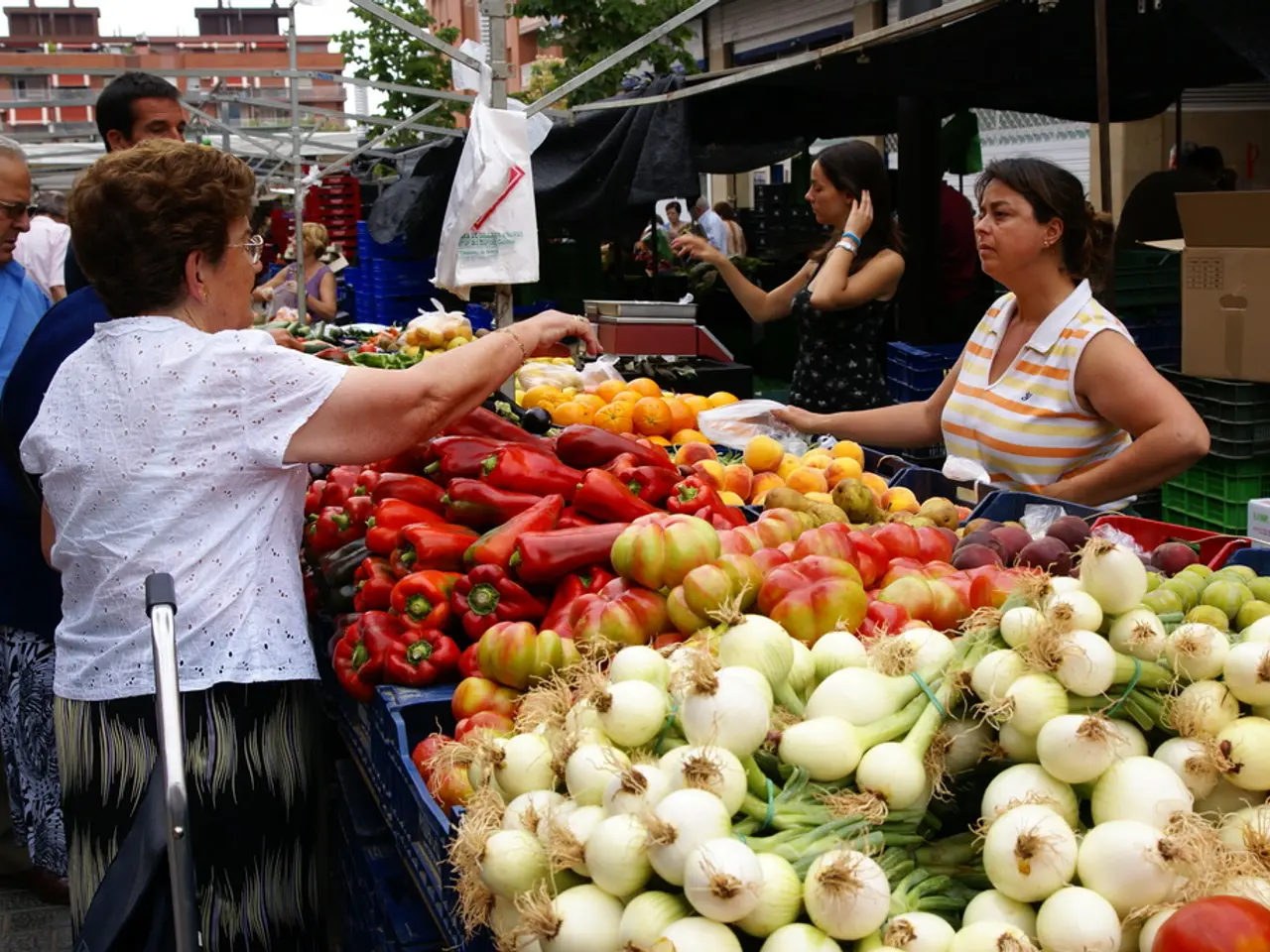Final Opportunity: Discussions on the UN Plastic Treaty
Global Efforts to Curb Plastic Pollution: A Binding Agreement in the Making
A landmark agreement to address the global plastic pollution crisis is being negotiated in Geneva, with over 160 countries participating in the INC-5.2 conference from August 5 to 14, 2025 [1][3][5]. The proposed treaty aims to establish a legally binding instrument that covers the full lifecycle of plastics, from design and production to disposal, with the ultimate goal of ending plastic pollution worldwide [1][3][5].
The treaty, dubbed as a potential "game-changer" by Ecuadorian Ambassador Luis Vayas Valdivieso, who is chairing the conference, seeks to promote plastic circularity and prevent plastic leakage into the environment [3]. It targets issues such as single-use plastics, hazardous chemicals, and waste mismanagement comprehensively [3][5].
However, the negotiations are not without challenges. Key points of contention include the setting of binding targets to reduce virgin plastic production, opposition from certain fossil fuel and plastic industry-dependent countries, and disagreements over the scope and enforceability of provisions related to environmental health and plastic waste management [2][4].
One of the most significant divisions in the negotiations revolves around the issue of limiting plastic production. Nearly 100 countries, including many European, African, Latin American, and Pacific Island nations, advocate for upstream measures such as binding targets to reduce virgin plastic production to sustainable levels [4].
On the other hand, the United States, along with Gulf states, Russia, and other oil-producing countries, strongly oppose binding production cuts or restrictions on plastic chemical additives [2][4]. Their stance has contributed to the current deadlock in the negotiations.
Another contentious issue is the balance between economic interests and environmental goals. Countries with significant petrochemical industries argue about the economic impacts of strict regulations, influencing their stance towards weaker treaty provisions [2][4].
There is also concern that the treaty could be diluted into a non-binding framework of voluntary measures rather than enforceable targets and obligations [2].
Despite these challenges, support for a strong contract with clear provisions, including production limits, is widespread. More than 100 countries, including the EU, want a robust contract with global rules and uniform commitments [4]. In addition, around 300 companies and financial institutions have expressed their support for such an agreement [4].
If an agreement is reached, a diplomatic conference for signing will take place next year [4]. The agreement is important for people in Europe and beyond, as microplastics are spreading through oceans and air worldwide, and many plastic products are not made in the EU and may not comply with EU regulations [4]. Germany, as the largest plastic waste exporter in Europe, also plays a significant role in the global waste problem [4].
The U.S. government under Donald Trump's administration is currently dismantling all kinds of regulations, complicating the negotiation situation [4]. However, the clock is ticking, and the groundwork is being laid for a global tool that could change the course of environmental history [3].
References: [1] United Nations Environment Programme (UNEP). (2025). The fifth session of the intergovernmental negotiating committee to develop a legally binding instrument under the United Nations Convention on the Law of the Sea on the prevention of marine pollution by plastic litter and microplastics. Retrieved from https://www.unep.org/intergovernmentalprocesses/Waste/PlasticPollution/
[2] The Guardian. (2025). Plastic pollution treaty: tensions rise over production cuts and economic interests. Retrieved from https://www.theguardian.com/environment/2025/aug/07/plastic-pollution-treaty-tensions-rise-over-production-cuts-and-economic-interests
[3] BBC News. (2025). Plastic treaty: Can a global agreement stop pollution? Retrieved from https://www.bbc.co.uk/news/science-environment-58219290
[4] Reuters. (2025). Fossil fuel-dependent countries block ambitious plastic treaty in Geneva. Retrieved from https://www.reuters.com/business/environment/fossil-fuel-dependent-countries-block-ambitious-plastic-treaty-geneva-2025-08-10/
[5] The New York Times. (2025). Plastic Pollution Treaty: A Race Against Time. Retrieved from https://www.nytimes.com/2025/08/05/science/plastic-pollution-treaty.html
- The treaty, aiming to tackle plastic pollution, also seeks to address the vital role of science in health-and-wellness, as microplastics pose a danger to both human health and the environment.
- As the negotiations over the binding agreement progress, mental-health advocates emphasize the potential psychological impact of climate change and environmental degradation, calling for the inclusion of mental health in the treaty's scope.
- Environmental-science experts warn that the treaty's success could inspire global efforts to combat other pollution crises, such as pollutants that endanger our air, water, and soil resources, ultimately leading to a healthier planet.




